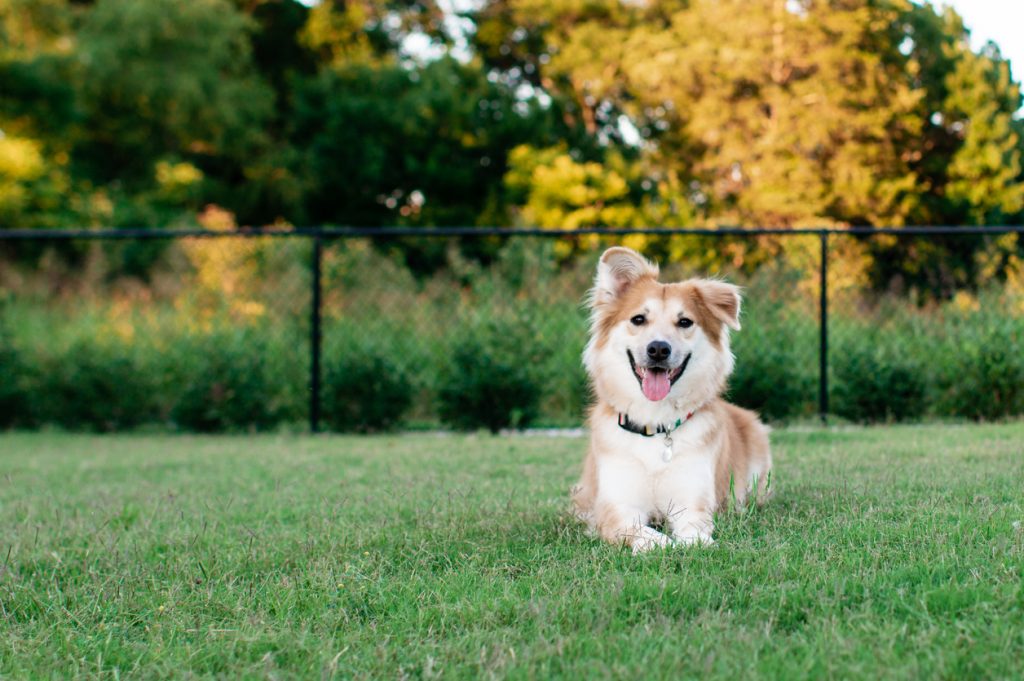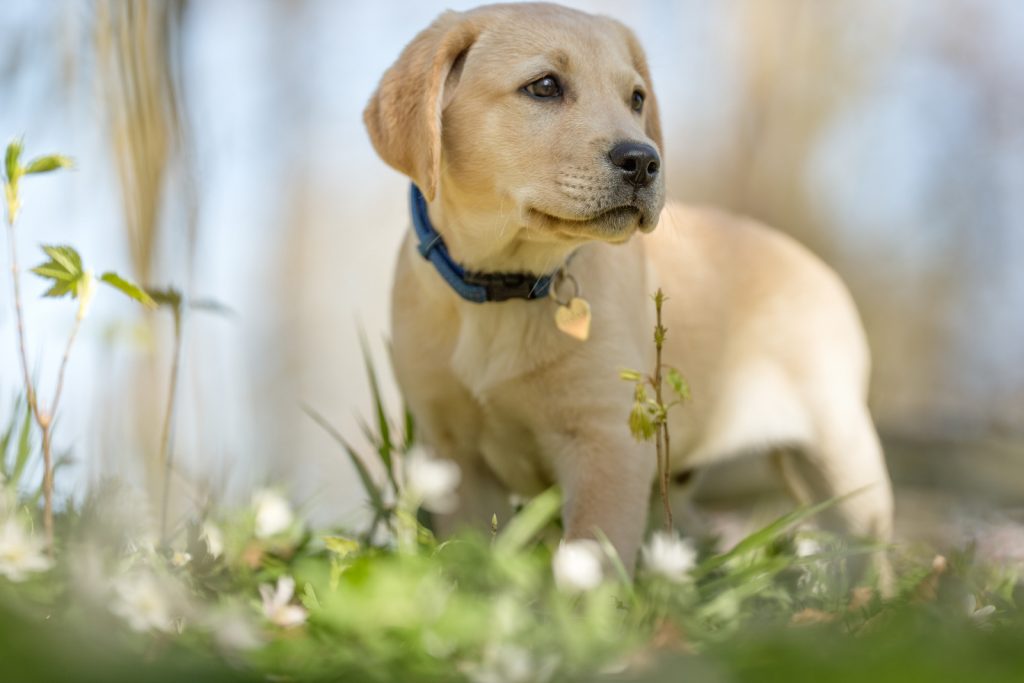Your guide to taking on a new companion.
Sponsored by Pedigree
We all know that canine companions can fill our lives with magic and joy! However, getting a dog is a big commitment, so before you take on a new pet you must be confident you can give them all the time, love and care they’ll need for the rest of their days. Once you’re sure it’s the right decision for you, there are other big choices to make in terms of whether to take on a puppy or an adult and where to find them. Here’s a brief run-through of the things to consider before getting a dog and what to look out for in a rescue centre or breeder.
Should I get a dog?
Dogs can make fantastic companions, but these wonderful creatures do come with a lot of responsibility. If you decide to take on a new canine, it’s important to be sure you’re able to give them all the care they need, both now and in the future.
Thinking forward into the future is a particular issue in these distanced times, as so many of us are working from home and it can seem a very appealing idea to take on a new pet in this situation. While it may be a great time to get a new friend settled in, it’s important to consider how your routine will change and whether it’ll still be right to have a canine companion once the world returns to normality.
Questions to ask yourself include whether you’ll have the time to give your new friend all the walks, training and attention they’ll need, whether you can avoid leaving them ‘home alone’ too much, and whether you have enough space for them in your home. Another thing to consider is how often you travel, and what your plans will be for your pet when you’re away.
As well as these questions, it’s also worth giving some thought to the financial side of things. There are a range of costs that come along with getting a dog including food, beds, toys, flea/worming treatment and vaccinations and so on, but it’s also necessary to know whether you’d be able to cover any unexpected expenses if your pet is ill. Pet insurance can be very helpful in this regard so it’s worth looking up the cost of some policies and thinking about whether this would work for you. Another key factor to feed into your decision is how a new dog might fit in with your family. Think about how any children or other pets you have might adjust to a dog, as well as whether there are any regular family visitors who might have a pet allergy. Considering all these questions will help you decide whether a dog is right for you, and if so, what type of dog will suit you best.

Should I get a puppy or an adult dog?
If you decide that it’s the right time for you to take on a new canine companion, a big question is whether to get a puppy or an adult dog. Puppies are adorable and it can be wonderful to care for them as they grow up into their personality, but looking after them does take a lot of time and effort. If you’ve got a busy life, it can be hard to find the time to get them settled in and house trained and make sure they’re up to speed with puppy training.
As well as the immediate time investment, you’ll need to commit to care for your new pup for many years into the future. Some dogs can live into their teens, so if you take on a young puppy, you’ll need to think about your long-term future plans.
The situation is slightly different if you take on an adult dog, as they may require a little less in terms of long-term commitment, and the immediate time investment may also be lower. However, you’ll still need to give them a lot of attention as they settle in, and you’ll need to be sure you can care for your new pet for the remainder of their days.
As a general rule, adult dogs will have a better-established character than puppies, and this can be an advantage if your new dog is a good fit for you. However, do bear in mind that depending on their previous history, some rescue dogs will be better trained than others, some will be nervous or have behavioural issues, and some will find it easier than others to adjust to a new home and routine. If you go to a good rescue centre, they will be able to advise on the character of different dogs and help you find the perfect companion for you.

How to get a dog as a rescue
Re-homing an adult dog is a great way of giving a wonderful canine a loving home. Most dogs will be re-homed from rescue centres, though it may be that you take on a dog directly from another household. In this case, you may well know the dog already and so you’ll have a reasonable idea if they’ll be right for you. If you don’t know the dog so well, it’s useful to visit them at home so you see how they behave in their own environment, and get familiar with them by taking them out on a few walks. It’s also important to ask questions relevant to your situation such as how they get on with children, cats or other dogs, and to make sure you find out about their medical history.

If you’re thinking of taking on a dog from someone you don’t know at all, it’s worth bearing in mind a word of caution. Some people will sell stolen dogs through adverts on social media or classified ads, so it’s vital to check that everything’s above board. It’s generally a warning sign if the seller appears to be in a hurry or if they want to meet in a public place such as a car park, rather than letting you see the dog in their home environment. It’s also always worth checking that they have all the relevant paperwork (more on this below!) and that the dog’s microchip is registered in their name. As a general rule, it’s much safer to take on a dog from a reputable rescue centre than from someone you don’t know online.
If you take on a dog from a rescue centre, they should know about the dogs they’re looking after and be able to advise you on which are likely to be a good fit for your home. A good rescue centre will ensure their dogs are microchipped, vaccinated, neutered and covered for fleas and worms, or be able to provide advice on these matters.
Good rescue centres will also want to be sure the dogs they’re looking after will go to the right home, so they’ll likely ask you lots of questions and maybe arrange a home visit. They’ll want to check you know how to look after a dog, and will be able to give you any extra advice necessary. Don’t worry about being asked a lot of questions, as it just shows that they care and they’re being responsible!
How to find a good dog breeder
If you’re buying a young puppy, it’s important to find a responsible breeder who takes good care of their animals. It’s worth taking the time to check this, as you’ll want to avoid buying from ‘puppy farms’ where dogs are kept in poor conditions and not looked after properly. Puppies bred in these farms are often sold by separate dealers, which is now against the law in the UK, but the RSPCA warns that the illegal puppy trade is still a problem.
Avoiding these places means that you won’t be supporting them, and also that you’ll take on a healthier pup. Puppies with a good start in life are set up to thrive, whereas those who grow up in poor conditions can suffer from illness or behavioural problems. Also, responsible breeders will carefully choose the parents to breed healthy pups.
So, how to find a good dog breeder? If you’re buying a pedigree pup, consider using the search tool for Kennel Club Assured Breeders, as these breeders are inspected regularly and they will maintain high welfare standards and provide assistance to new owners both before and after sale. There will also be many other responsible breeders not assured by the Kennel Club though, and there are various clues you can look out for to check whether a breeder is right for you.
A responsible breeder will be able to tell you all about the puppy and their parents, and will be happy to show you round and let you meet the pup’s mother (and father if present) as well as their siblings. They will also be willing to tell you all about their setup including how many dogs they have and how often they breed from each bitch. As a general rule, it’s a worrying sign if they breed from a bitch more than once in a year or more than four times in total, or if they are selling puppies of more than one breed.
Good breeders will also be keen to do what’s best for the pup, so they will ask you questions about your home and give you advice as you’re starting out, and they should also be willing to take the puppy back if this should prove necessary for any unexpected reason. They’ll have kept the litter up to date with worming, and will be able to tell you when the next dose is due when you pick up your pup. They should also be able to provide you with all the relevant paperwork.

What paperwork do I need with a new dog?
Whether you’re picking up a new puppy or taking on a rescue dog, there are various pieces of paperwork to think about. Not all of these are necessary in every situation, but it’s useful to run through the checklist and work out what you need.
- Vaccination card – this is a record of the vaccines the dog has been given, so you can see when they’re next due a dose. A rescue centre should provide a vaccine card for all dogs, and breeders will provide a card if the pup has had their first vaccine. It’s important to be able to pass this information on to your vet, so they can schedule the second puppy vaccine at the right time and make sure they give a compatible brand of vaccine.
- Other veterinary information – if you’re taking on an older dog, you’ll need to know any relevant medical history including whether your new pet has any ongoing conditions or takes any medication. A puppy should have had a vet check before they come to you, so it’s worth asking if any concerns were identified.
- Microchip details – all dogs must be microchipped, and you’ll need the microchip information so you can transfer the ownership details to your name. For puppies, breeders are responsible for chipping and this must be done by 8 weeks old.
- Record of recent flea/worm treatment – this is especially important for puppies as they need frequent worming when they’re little. It’s very useful to know what product was used last and when the next dose is due.
- Insurance information – many breeders and some rescue centres will arrange a short-term insurance policy for your new pet. Before this runs out, it’s a good idea to decide whether you’re going to extend that policy or arrange insurance with another provider. In general, pet insurance is very helpful to make sure you’re able to cover any unexpected costs when your pet is ill.
- Pedigree details/Kennel Club certification – for pedigree dogs registered with the Kennel Club, you’ll need the original copies of the relevant paperwork.
- Health information on the parents – this is relevant for puppies. For some breeds, there are health screening schemes for certain inherited diseases such as hip dysplasia, elbow dysplasia and some eye problems. It’s worth looking up what health issues your chosen breed is prone to and finding out what testing schemes are relevant. All breeders registered with the Kennel Club are required to carry out breed-specific health screening.
That’s the paperwork covered, but there’s a whole lot more to think about when you’re taking on a new pup! You’ll need to make sure you’re all set up with a bed, puppy pads, lead and collar and so on. Take a look through our checklist for a new puppy to learn more about what you’ll need to get started.
Found these tips helpful? Join Vital Pet Club’s e-news to be the first to hear about exclusive pet freebies and pet care tips!
A message from Whiskas and Pedigree:
Every dog deserves a loving home. That’s why our goal is for all dogs around the world to be in a loving home by 2030. To help support this mission, we’ll be donating over 3 million meals* to rescue centres (ADCH members) across the UK over the next 12 months to help ensure shelter dogs are getting the nutritious food they need while they wait for their perfect owner to take them home. We’ve also partnered with the ADCH** and its members, to deliver a support programme to shelters across the UK to help tackle the barriers to pet adoption and to equip shelters and owners with the resources they require to ensure all pets are wanted and cared for.
*In partnership with Whiskas & Pedigree. Meals provided July 2021 – July 2022. One meal equivalent to 239 calories of Pedigree Dog Complete Dry with chicken and Vegetable, based on the average size dog of 14.8kg and 3 meals a day.
**To find out more information on our partnership with ADCH, Registered charity no: 1180574 please visit www.adch.org.uk


